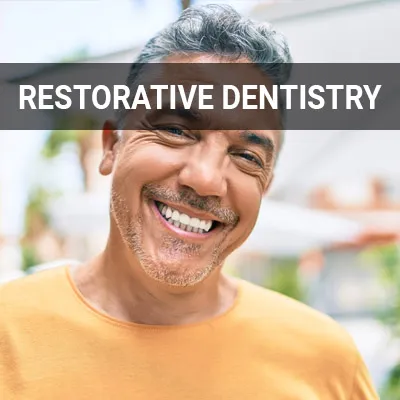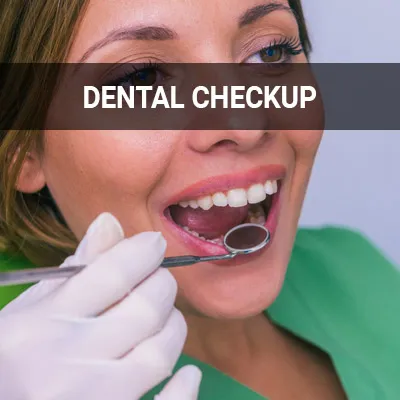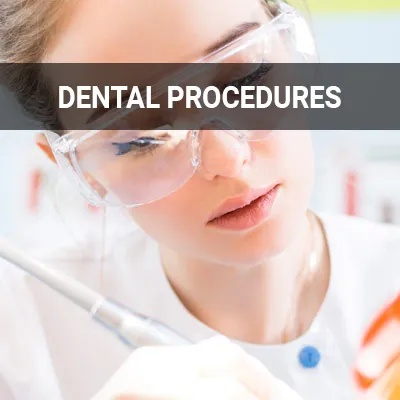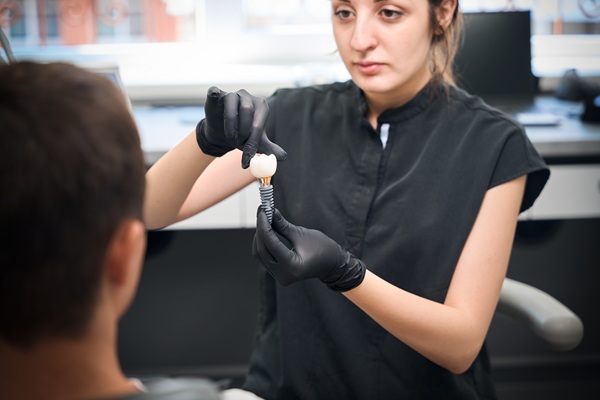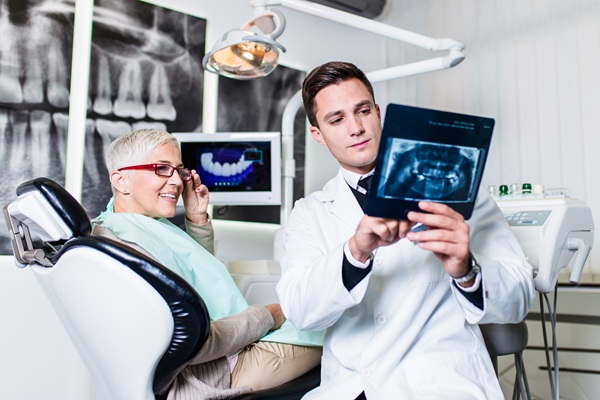Do I Have Sleep Apnea Alpharetta, GA
Sleep apnea, a rare breathing disorder, is treatable through a variety of dental treatments that target the issue at hand. Whether the cause of sleep apnea is a jaw placement or issues in the airways, it is a good idea to receive a dental evaluation. Not only is sleep apnea life-threatening during sleep, it often affects many factors in an individual's life, health, and well-being.
Treatments for sleep apnea are available at Windward Parkway Dentistry in Alpharetta and the surrounding area. We can help determine whether your sleep apnea is due to an oral issue and discuss the treatment that would work best. Call us today at (770) 814-6224 to schedule an appointment and learn more.
Understanding Sleep Apnea
Obstructive sleep apnea is a condition where patients have something blocking (or obstructing) part or all of their upper airway in their sleep, forcing the diaphragm and chest muscles to work harder to pull air into the lungs. This condition may cause the patient's breathing to become very shallow or even briefly stop altogether. Eventually, when the patient begins to breathe again, it will be accompanied by a loud gasp, snort, or body jerk.
Many patients are not aware that they have this condition and may think they are only suffering from inadequate sleep. Dentists may be able to recognize and treat the signs of sleep apnea, as these symptoms often take a toll on the mouth and jaw.
“Obstructive sleep apnea is a condition where patients have something blocking (or obstructing) part or all of their upper airway in their sleep, forcing the diaphragm and chest muscles to work harder to pull air into the lungs.”
Sleep Apnea or Sleep Disorder?
A sleeping disorder refers to habits occurring during sleep that affect breathing and overall health. Breathing pattern disorders (BPD), or dysfunctional breathing, are chronic or recurring conditions that cause a distortion in sleep. Sleep apnea is often referred to as both a sleeping disorder and a breathing disorder as these two factors are affected.
Sleep apnea is a serious, life-threatening condition that can greatly reduce oxygen levels, accelerate the heart rate, and increase blood pressure. Oxygen and adequate sleep are essential for proper brain functioning. Therefore, combining low oxygen levels with obstructed sleep can affect multiple parts of the body such as the muscles, mind, mood, and metabolism.
“Sleep apnea is often referred to as both a sleeping disorder and a breathing disorder as these two factors are affected.”
Causes of Sleep Apnea
Many patients are surprised to learn about the link between sleep apnea and dental health. Often, the pauses in breathing associated with sleep apnea are caused by flaccid muscles in the back of the throat, a too-large tongue, or a too-small jaw. Tooth grinding, or bruxism, is the first sign of sleep apnea. This may cause tooth wear and breakage, along with inflamed and receding gums. Windward Parkway Dentistry can conduct a thorough oral examination to determine whether or not a patient has sleep apnea.
“Many patients are surprised to learn about the link between sleep apnea and dental health.”
Check out what others are saying about our dental services on Yelp: Do I Have Sleep Apnea in Alpharetta, GA
Recognizing Sleep Apnea
Some groups may be more at risk of developing sleep apnea than others. Age, for instance, increases one's chance of developing sleep apnea. The condition is also more common in younger men than in younger women. Unhealthy lifestyle habits, such as excessive alcohol consumption, smoking, and poor diet, may also contribute. Taking steps towards a healthier lifestyle may lessen an individual's risk of developing sleep apnea.
Being able to recognize the signs of sleep apnea is crucial. Patients should watch out for sore throat upon waking, excessive daytime sleeping, restless sleep, decreased libido, waking during the night, high blood pressure, and gastroesophageal reflux disease (GERD). Children may also exhibit different symptoms of sleep apnea than adults. These may include bedwetting, choking, drooling, excessive nighttime sweatiness, learning and behavior issues, and problems at school.
“Children may also exhibit different symptoms of sleep apnea than adults.”
Questions Answered on This Page
Q. What are the signs of sleep apnea?
Q. How can I manage my sleep apnea?
Q. Is sleep apnea a sleeping disorder?
People Also Ask
Q. What additional treatments are available at a general dentist?
Q. What are the benefits of an FSA?
Q. How can I find a new dentist?
Treating Sleep Apnea
Luckily, there are many different ways to treat sleep apnea including oral appliances. Patients who are good candidates for oral appliances must have impressions of their teeth and return for a fitting during a later appointment. It may be necessary for patients to have another sleep test while wearing the device to ensure its efficacy. Further office visits may be required to make adjustments. These devices are unobtrusive and easy to travel with, as they do not require any electricity.
Other options include continuous positive air pressure (CPAP) machines and surgery. These are more involved treatments that may benefit those with more severe cases of sleep apnea. Windward Parkway Dentistry can help patients determine which treatment is right for them.
“Windward Parkway Dentistry can help patients determine which treatment is right for them.”
Frequently Asked Questions
Q. How common is sleep apnea?
A. According to the Sleep Foundation, "Obstructive sleep apnea is estimated to affect between 2-9% of adults in the United States, but many cases are believed to go undiagnosed." Since a person may go a long period of time without realizing that they have sleep apnea, many are unaccounted for.
Q. What is the success rate of sleep apnea treatments?
A. Each case, treatment, and person is different. There could be two patients with the same type of sleep apnea but who have entirely different results. For example, the success rate of most sleep apnea surgeries is 60%, while a CPAP machine may completely cure a person of their condition.
Q. What are the possible complications of untreated sleep apnea?
A. Sleep apnea is a life-threatening condition as oxygen is a pertinent component of overall health, affecting nearly every organ. Going without treatment can result in hypertension, heart disease, fatigue, migraines, type 2 diabetes, metabolic syndrome, cardiovascular disease, memory problems, weight gain, and liver problems.
Q. What are the long-term effects of sleep apnea?
A. Going without treatment for a long period of time can have dire effects on the mind and body. Long-term effects of sleep apnea include, but are not limited to, high blood pressure, stroke, heart failure, heart attacks, and irregular heartbeat. It is important to seek immediate help and treatment when first experiencing symptoms.
Q. What foods should be avoided for patients with sleep apnea?
A. There are not many restrictions on foods and beverages for patients with sleep apnea unless their case is caused by an allergy or other specific factor. Dairy and bananas are known to increase mucus production, which can cause or progress sleep apnea. We will discuss any restrictions if a patient's case requires them.
Dental Terminology
Learn More Today
Treating sleep apnea can improve your overall dental health and quality of life. We at Windward Parkway Dentistry may be able to help. Call us today at (770) 814-6224 to schedule an appointment and learn more.
Helpful Related Links
- American Dental Association (ADA). Glossary of Dental Clinical Terms. 2024
- American Academy of Cosmetic Dentistry® (AACD). Home Page. 2024
- WebMD. WebMD’s Oral Care Guide. 2024
About our business and website security
- We accept the following payment methods: Cash, Check, Discover, MasterCard, and Visa
- We serve patients from the following counties: Fulton County
- We serve patients from the following cities: Alpharetta, Bethany Crossing, Herring Township, and Milton
- Norton Safe Web. View Details
- Trend Micro Site Safety Center. View Details
Back to top of Do I Have Sleep Apnea



